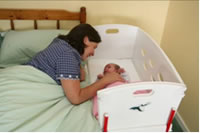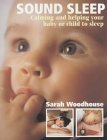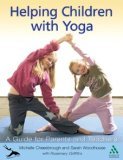 In the last few years, particularly since 2006, there has been an enormous leap in concern in the UK – now amounting to despair – about the present state of childhood. This despair centres mainly on the loneliness and high stress levels of mothers and the resulting loss of patient, confident and selflessly loving baby-handling and toddler-handling and a deep delight and pride in parenting.
In the last few years, particularly since 2006, there has been an enormous leap in concern in the UK – now amounting to despair – about the present state of childhood. This despair centres mainly on the loneliness and high stress levels of mothers and the resulting loss of patient, confident and selflessly loving baby-handling and toddler-handling and a deep delight and pride in parenting.
Only shared parenting qualities, understanding and skills are able to confront and counteract the effect of the huge and accelerating changes in society, a growing poverty of spirit and the emotional and physical violence in which many children’s lives are immersed. The vulnerability of young children means that they can be deeply affected for life through what they watch on screen or hear, see or experience in or outside the home from birth and often right through childhood and adolescence. Harm can come even before birth, through stress hormones absorbed by a baby in the womb.
This despair about children’s lives also hinges on the failure of recent governments in the UK (but not in other European countries such as Sweden and the Netherlands) to develop a legal framework which puts the family at the top of the agenda and provides physical and emotional support and financial protection for every woman from the first confirmation of her pregnancy and throughout the crucial first three years of her child’s life.
Every new mother’s sense of security and confidence also depends upon the full and individual support of a trained Midwife before and during the birth and then follow-up friendship and support from a known Health Visitor. There is a 10,000 shortfall of working Midwives in the UK at this time with all the added stress that this implies for pregnant women.
The lonely struggle for many parents and growing national sense of despair comes also from the falling away of a supporting community and a loss of the neighbourliness which means there is a shared interest in and responsibility for all children, their well-being and their behaviour. The sense of security and affection that this gives and which is therefore built into families with young children is like a lifeline.
Research Findings
This deepening and rapidly spreading concern has been highlighted again and again recently through longitudinal and in-depth studies and research programmes, some of them massive. For example:
- What on Earth are we doing to our Children? An Appeal to the Nation’s Conscience. A report published by the Maranatha Community, Manchester 1995 (being updated now).
- A Community Study of Physical Violence to Children in the Home and Associated Variables led by Marjorie Smith, Deputy Director, Thomas Coram Research Unit in London, commissioned by the Department of Health and undertaken during the 1990s. One of the findings in this study was that one in four mothers in England and Wales now hit their babies before they are a year old.
- The WAVE Report 2005: Violence and what to do about it, based on nine years of research into the roots of violence, paints a full and concise picture. This Report also describes the best of existing tried-and-tested solutions and programmes designed to foster parental attunement to the needs of children and the development of empathy in children towards the feelings of others. The WAVE Report confirms powerfully how serious the long-term damage is to children’s brains and emotional well-being, where there is neglect, mishandling or abuse, and how this takes place, almost invariably, before the age of two.
- Fractured Families The State of the Nation Report undertaken through the Social Policy Justice Group. December 2006. http://www.bcft.co.uk/Fractured%20Families%202006.pdf
- A series of research undertakings by WATCh? (What About The Children?) has led to detailed reports concerning the emotional needs of children under three. Findings show that consecutive hours of separation of a child from his mother during the first six months and whole-day separation during the first two years will be seriously harmful. The slowing effect on the growth of the fore-part of the brain called the pre-frontal cortex and changes in a child’s overall brain structure will occur whenever the stress of separation for a child in day-care or attending a nursery causes a repeated flooding of cortisol (the stress hormone) in the child. This is almost invariable in any child under three.
- The Children’s Society National Inquiry into the state of childhood in the UK today. Good Childhood? – A question for our times gives a further jolt to our sense of crisis.
- Further impetus to this deep and rapidly rising despair about the state of childhood came through the recent UNICEF Survey and Report (February 2007) on children’s emotional well-being, happiness and health in the industrialised countries of the West (February 2007). Sweden and the Netherlands come overall top of the list. The UK and the US come bottom.
- A report from NCH – The Bridge Child Care Development Service called The Emotional Harm and Wellbeing of Children, June 2007. This research identifies risk factors and protective factors through focusing on children who, from their earliest years, present phobias, anxiety states, sleep problems, ADHD, eating disorders and depression – those children who are unable to learn, unable to make friends and are often suicidal. Figures based on Office for National Statistics and Young Minds.
Junk food and ingested poisons
The effect of junk food – and therefore a shortage of essential nutrients – and the harmful effect of invasive toxins and pollutants on children’s bodies and brains is being ever more fully researched and documented.
Television, Computer Games and Commercial Pressures
Other research brings us face-to-face with the indelible changes to a child’s brain structure – and therefore behaviour – which are likely to result from an almost daily dose of emotional tension, human hatred and aggression, horror, violence and cruelty watched on the screen – alongside an incitement to wealth, possessions and the wielding of power, particularly psychological and sexual power, over others. See National Consumer Council Report July 2007: Watching, Wanting and Wellbeing (www.ncc.org.uk).
Recorded also is the increase in children’s addiction to frightening and violent computer games and pornographic videos/DVDs, often leading to a mimicking of something that has been watched or heard.
Other devastating statistics
In addition there have been repeatedly publicised statistics about the continuing increase in baby and child neglect or abuse by parents, child depression, child suicide, violent child crime, Special Needs children in school, vandalism, bullying, pupil exclusions, teenage stabbings, gun violence, teenage pregnancies, binge drinking, drug addiction, single parents, post-natal depression, emotional and physical violence in the home and family break-up.
Costs
A statistical assessment is that the social costs of violence in the UK are around £20 billion a year – and countless damaged lives.
Neurological research
It is the recent and dramatic neurological research, much of it based on the work in America of Dr Chiltern Pearce, which is able to lead to a new understanding of the support and help that is needed to avoid harm to unborn and newborn babies and young children and therefore the new and true understanding and sensitivity needed by parents. This neurological research shows us very specifically how a woman’s severe or continuous state of stress during her pregnancy can harm the way her baby’s brain will grow in the womb.
Dr Chiltern Pearce also describes how separation anxiety in a baby or young child can cause an enlargement of the reptilian brain – the ancient, unthinking, instinctive, flight-or-fight part of the brain at the top of the spine. He describes vividly how any set-back to the development of the pre-frontal cortex, during this window of growth in the first two years – alongside the compensating enlargement of the reptilian brain – invariably results in a child becoming easily frightened, defensive, confrontational and frequently aggressive. This can be seen even by the age of three.
The pre-frontal cortex is the part of the brain which ties us in with our family, our community and our culture. It only starts to grow after birth when a baby first sees his mother’s smiling face and feels her gentle touch. Its full growth will depend largely on the degree of closeness and tenderness between mother and baby and their growing joy in each other. Shining eye contact, smiles, quiet talk, being held in arms or in close touch day and night for at least the first six months has a startling effect on the growth of the pre-frontal cortex. The continuous close presence of a mother who is calm and confident – or a one-to-one very loving and familiar mother figure there in her stead – lies at the heart of all good things that will follow in every child’s life.
The pre-frontal cortex is the master brain where human values, such as kindness, generosity, empathy, compassion and a sense of the spirit reside. Its growth is virtually complete by the end of a child’s second year. It is through the pre-frontal cortex that continuous working connections begin to develop between a young child’s brain and the millions of neurons (brain cells) in the muscles of that child’s heart. Eventual personality traits and behaviour, particularly compassion and empathy will depend more on this sense of security and lovableness in those first months than on any inherited genes.
When the pre-frontal cortex is not able to grow fully
Children who have not had this close, unbroken bond with their own mother or mother figure from birth will be likely to show early signs of fearfulness, of withdrawal… or an anxiety to please-at-all-costs… or thoughtless, unkind and aggressive behaviour to other children.
The tendency to tease and to bully will become a part of these children’s developing personalities and, by the age of eight, they are likely to be drawn to violence on the screen. Only a full understanding of what has happened and why and continuously loving care and attention given to the mother and her child by a wise and close care-giver can begin to reverse the harm that has been done. This may become an impossible task if it comes too late.
Dr Pearce describes clearly not only the effect of emotional neglect or stress on the growth of the pre-frontal cortex during the first two years, but also on the protection afforded to a baby through remaining within the electro-magnetic energy field of a calm and loving mother. Just as the earth’s magnetic energy field envelopes and provides energy for every living creature on earth, a mother’s electro-magnetic energy field will encircle her baby or young child even some feet away from her. This protection will only be in place if her newborn baby is close enough to her day and night, at least for the first six months, and can remain within hearing and easy reach of her most of the time during the next two and preferably three years. Only this continuing sense of security will ensure a child’s whole and healthy brain development and the crucial link-up between brain and heart.
A loss of this closeness and sense of security leads decisively to the dimming of a child’s imagination, creativity and the capacity to love and to be sensitive and compassionate towards others. It numbs a child’s ability to learn and to build strong, loving and lasting relationships. The numbing can be lifelong.
The public reaction and response
The first public and concerted response to the shattering downslide in children’s lives started with a letter to the Daily Telegraph in September 2006. As Chief Executive of Right from the Start I was one of the 110 signatories to this letter. The trigger had been the publication of Sue Palmer’s book Toxic Childhood.
Toxic Childhood, that letter and the editorial alongside it in the Telegraph became a powerful wake-up call to all child-care and educational establishments, as well as to thousands of individual people who work with children and families, or who are parents themselves.
Conferences, workshops, seminars and study days were held immediately after the
UNICEF Report was published. These continue to be set up to consider by what means crucial changes can be implemented to reverse these multiple and destructive trends in our families, schools and communities. The first meetings were set up by Roehampton University, the Alliance for Childhood, WATCh?, CPHVA and CRAE (Children’s Rights Alliance for England).
Follow-ups to these conferences are now being scheduled and are taking place. Concern from Steiner Education and other educational charities, agencies and MPs is building up. A Charter for Childhood, an anti-commercialisation of childhood charter, is being drawn up by Compass with a strong emphasis on a child’s need for play – especially play outside. Meetings with the All Party Committee on the Family are taking place, it is hoped with very serious intent.
The Right from the Start reaction and response
Over the same period of increasing anxiety and research into the state of childhood in the UK, a Charitable Company called Right from the Start was set up to develop a wide-ranging and practical response to the many stresses and hurts showing in children’s lives, the growing loss of confidence and competence of parents and the dwindling sense of achievement and delight of teachers.
Right from the Start is a vision for children and their futures. It is based on respect for the inner child and the need to give all children the best possible start and to prevent the neglect, emotional confusion and violence now affecting so many children’s lives. The project exists to help to prevent or to heal these hurts and to prepare children for a happier and more fulfilling adulthood and parenthood in their turn.
Each richly illustrated book focuses on a single theme, yet each is inter-connected and supportive of the rest of the series. Prime concerns throughout are a sensitive and informed understanding of a child’s emotional and mental development needs – from conception to twelve – the building of a strong and loving bond between parents and their children and between children and their teachers – also the encouragement of greater community and Government support for family life.
Right from the Start aims to:
- build a background of love and security into the lives of children particularly during the ultra-sensitive first three years of their lives;
- encourage a full recognition of the spiritual nature of every person;
- answer some of the problems caused by poverty, parental loneliness and lack of support for families;
- respond to the damage caused to children by parental breakdown and the loss of family values;
- uphold children’s inborn capacity for sociability, empathy and co-operation, and to foster and strengthen good human relationships;
- break the cycle of fear, anger and abuse carried through from one generation to the next;
- bring children closer to the natural world and an understanding and care of the environment;
- counteract the corrupting elements in commercial pressures and materialistic values;
- reduce the tensions experienced by many teachers and enhance their sense of fulfilment.
 Right from the Start’s logo of a dolphin and child comes from the 18ft bronze sculpture by David Wynn on London’s Albert Embankment overlooking the River Thames. The child and dolphin playing together symbolise the trust, affection, adventure and sense of unity in all creation which each of us should be able to enjoy from earliest childhood to the end of our lives.
Right from the Start’s logo of a dolphin and child comes from the 18ft bronze sculpture by David Wynn on London’s Albert Embankment overlooking the River Thames. The child and dolphin playing together symbolise the trust, affection, adventure and sense of unity in all creation which each of us should be able to enjoy from earliest childhood to the end of our lives.
The Right from the Start book series is for parents, grandparents and carers, nursery and primary teachers, statutory and voluntary child care organisations, parent groups, training establishments, mother and baby clinics, and for use in Parenting Education courses in secondary schools.
The books are planned and written to provide parents, carers and teachers with up-to-date and invaluable research findings. They offer adults practical ways to give children:
- the attention and care they need,
- loving interaction and imaginative sharing of daily life,
- protection and nurturing of their ‘inner life’,
- time and space to play freely and explore – especially outside,
- the time and opportunity to speak their thoughts to adults who will listen.
They offer:
- fresh new ideas – as well as reminders of some older, well-established ones,
- creative and practical opportunities to change attitudes and patterns of response,
- support in bringing up children in ways that develop self-esteem, imagination, self-discipline and compassion,
- a forum where parents can learn from each other, and help build community.
 The BedNest
The BedNest
In addition to the Right from the Start books published or still to be completed, Right from the Start has designed a purposeful, fold-flat bedside crib called the BedNest. With extendable legs and removable sides, the BedNest attaches securely to the parent bed at the same level and keeps mother and baby within touch-and-breath reach throughout the night and when resting together during the day. This helpful and essential closeness follows naturally from the nine months in the womb and avoids the loneliness and distress of separation.
For BedNest information please contact the Managing Director, Nigel Whitaker, BedNest Ltd
Tel: 01305 851514)
www.bednest.com
Using the BedNest has many vital benefits
- It encourages and helps mothers to breastfeed quietly and peacefully during the night, with minimal disturbance of any kind for the rest of the family and greater likelihood of a rapid return to sleep after feeds for mother and baby.
- It helps a mother’s sense of communication and understanding of her baby to grow rapidly, and maternal instincts to begin to work well from the very beginning.
- It helps families to develop a special sense of belonging and sharing.
- It gives babies the continuous and gentle reassurance they need, particularly during the first six months. Being frequently touched whether asleep or awake is a crucial element in a baby’s settling, contentment and healthy brain development.
- The physical closeness and sense of safety provided by the BedNest reduces the likelihood of post-natal depression through enabling a mother’s hormones to rebalance more rapidly and completely.
- It enables mothers to care for their babies at night in darkness without the disturbance to sleep patterns that results from switching on the light.
Research work over the years towards the design of the BedNest and the drafting of the two Right from the Start books for new parents (Sound Sleep and A Right and Gentle Beginning) has clearly shown the main reasons why Sweden and the Netherlands have come out top in the UNICEF survey. Some time ago, both countries put in place a remarkably full and heart-warming support system for parents, starting from the moment pregnancy is confirmed and continuing until the child is three and to some degree until school age.
In Sweden, couples get 16 months’ parental leave for each child, including 10 weeks set aside for the father. For the first 13 months they are on 80% of full pay. Much support, physical and emotional, is given to parents during this period to help them to develop their parenting skills and to enjoy and bond closely with their young children. In the Netherlands, family life and the emotional and physical support given to mothers from conception is also a priority of government and within the community.
Right from the Start’s appeal for funding
- Considerable further funding is now urgently needed to cover the costs of the final completion and publication of the next five books in the series and their wider outreach through electronic media:
- A Right and Gentle Beginning. The central Right from the Start book for new parents and for midwives, health visitors and practice nurses.
- Stillness, Imagination and Meditation for Children
- Touch, Massage and Movement: Deepening the connection with children
- Playing for Life. Encouraging children’s imagination, optimism and creativity and protecting them from hurtful influences and violence.
- Inside Out. A book about disablement for children and their parents and teachers
- Natural Wonder. The enchantment that feeds the human spirit
- Rainbow Colours. Rainbow Energy. A source of children’s energy and contentment.
It costs us between £6,000 and £12,000 to research, draft, illustrate, edit, publish and promote each book including e-book and DVD/CD presentations.
- A grant or donation to cover the cost of the part-time salary of a new Chief Executive and all office and travel costs : £30,000 a year for the next two years or until the project is completed.
- £50,000 to develop an effective and on-going national and international Right from the Start promotion campaign which will include targeting Government and promoting the BedNest alongside the books for new parents.
Contact
If you are able and would like to become involved in any way or have any suggestions or personal contacts towards answering the challenges faced by Right from the Start, please contact me.
Sarah Woodhouse
Chief Executive, Right from the Start (Charity Registration No. 327989)
Director, Priory Cottage Designs (BedNest)
Welcome Cottage, Wiveton
Nr Holt, Norfolk NR25 7TH
Tel: 01263 740935 Email: [email protected]
Before setting up Right from the Start and starting work on the research, planning and drafting, Sarah Woodhouse was teaching secondary school pupils excluded from school for seriously disturbed, destructive and aggressive behaviour. She was also working with the NSPCC, with the Citizens Advice Bureau and was on the Council of Amnesty International for six years, with a particular brief for children’s rights and child protection. She developed the first Amnesty human rights education pack for schools in the 1980s called Teaching and Learning about Human Rights.
Two of the Right from the Start books:

Sound Sleep: Calming and Helping Your Baby or Child to Sleep (Right from the Start)

Helping Children with Yoga: Right from the Start
